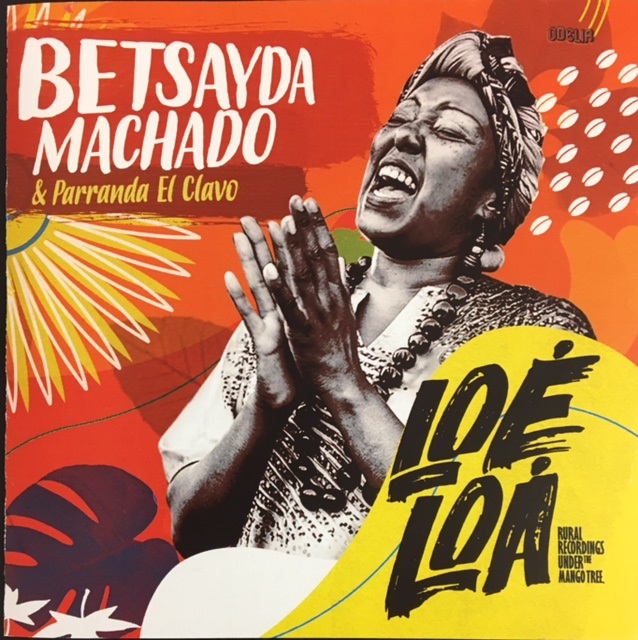When you press play on Loé Loa: Rural Recordings Under the Mango Tree, Betsayda Machado's voice rises like a 747 airplane: impossibly big but soaring all the same. You get a cadence, then a repeat from her backing chorus, and then the percussion hits. And if you thought Machado's voice was big, get ready to understand why, in Puerto Rico, parrandas are sometimes called asaltos, which translates to "assault." The beat barrels in exactly where you wouldn't expect it to be, and you're off to the races.
With just vocals, handclaps and drums—so many drums—Machado and her backing band La Parranda El Clavo are playing a stripped-down version of Venezuelan parranda. The genre's name sort of translates to “party” or “spree,” and the feeling on the album is very celebratory and social. The roots of parranda reach back to Africa and its siblings can be found in Colombia, Puerto Rico, and elsewhere in Latin America. This particular strain, however, is as local as they come. Although her career has taken her to Caracas, Machado returned to her hometown of El Clavo in Barlovento, Venezuela to make this record with a group that has been there for 30 years.
It is the sound of a very specific part of Afro-Venezuelan culture, people descended from those brought there to work in the cocoa fields, and some who farm cocoa still. Machado and the band are excellent ambassadors. Everywhere her forceful and nimble voice goes, the group capably follows. Though the music keeps up a steady pace, dynamics emerge.
The group was invited to Lincoln Center last year but could not clear visas in time. Their first tour is going on now. The touring ensemble and the record, released by Odelia, are supposed to be pale imitations of what you would hear in El Clavo when hundreds of players get together under the mango trees to sing and celebrate, but for those of us who can't go down to Venezuela next Christmas, the album will to suffice.









